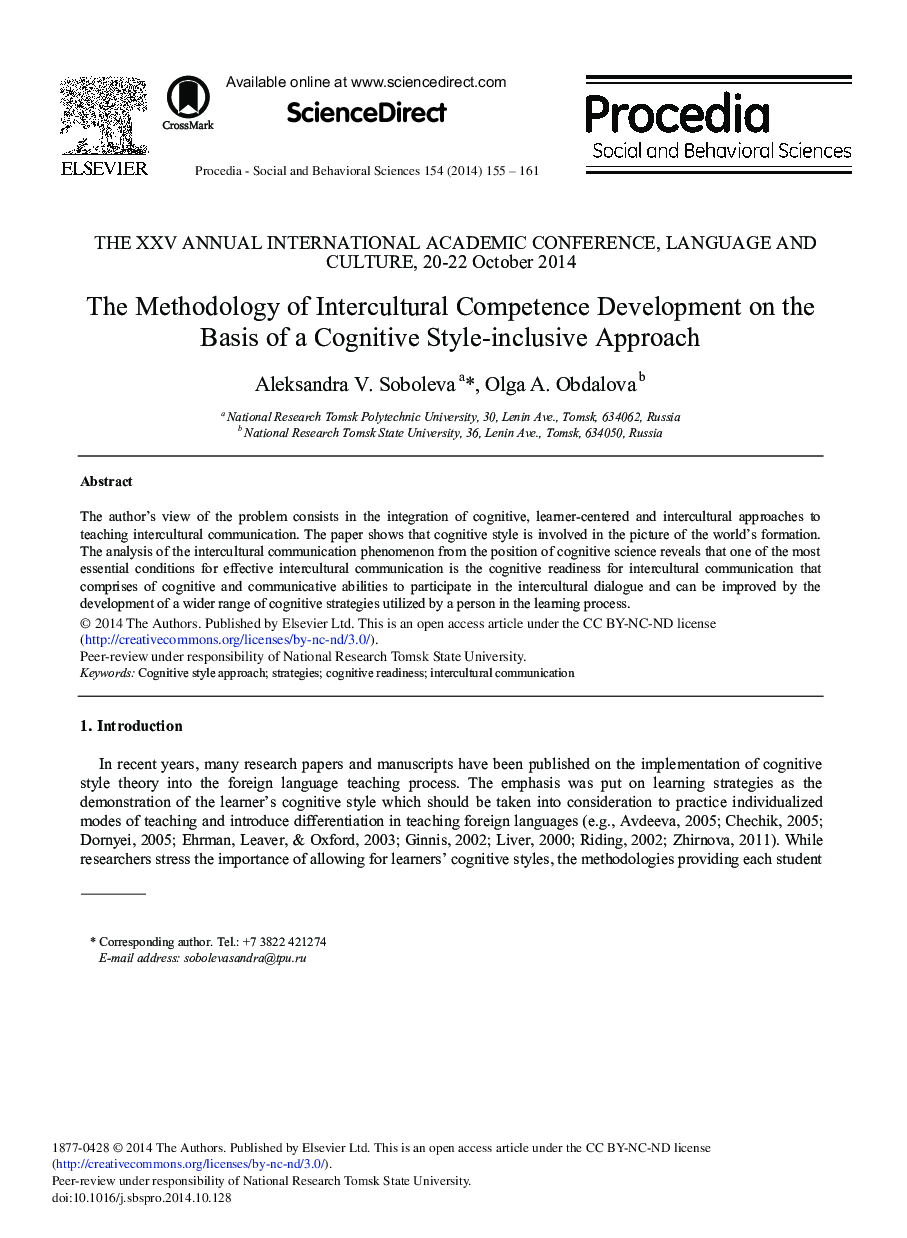| Article ID | Journal | Published Year | Pages | File Type |
|---|---|---|---|---|
| 1113014 | Procedia - Social and Behavioral Sciences | 2014 | 7 Pages |
Abstract
The author's view of the problem consists in the integration of cognitive, learner-centered and intercultural approaches to teaching intercultural communication. The paper shows that cognitive style is involved in the picture of the world's formation. The analysis of the intercultural communication phenomenon from the position of cognitive science reveals that one of the most essential conditions for effective intercultural communication is the cognitive readiness for intercultural communication that comprises of cognitive and communicative abilities to participate in the intercultural dialogue and can be improved by the development of a wider range of cognitive strategies utilized by a person in the learning process.
Related Topics
Social Sciences and Humanities
Arts and Humanities
Arts and Humanities (General)
